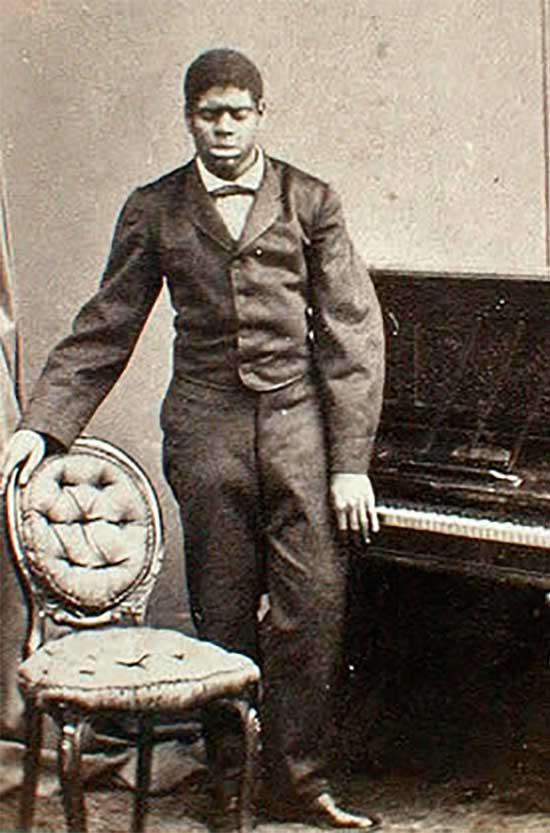With the ongoing global protests against systematic racism, a few friends asked me to put together a list of black classical composers. But I see that there are many already available, including an extensive list on Wikipedia. A few days ago, Classic FM published an articled entitled “9 black composers who changed the course of classical music history.” I also touched upon a controversial theory about Beethoven possibly having had some North-African blood on his maternal side and his general “otherness” (being hearing-impaired, etc.) at the beginning of this year, the 250th anniversary of his birth.
In this blog, I will share a short excerpt from my doctoral dissertation. My dissertation was on the genesis of memorization as a piano performance practice, an astonishingly unexplored historical topic. It turned out to be an extremely complicated subject I needed to contextualize within the major technological, political, aesthetic, and philosophical movements of the nineteenth century. For the purpose of this blog, I will say (although this is a gross generalization) that memorization became a way for non-composing performers – often women, child prodigies and/or ethnic minorities – to transform themselves as conduits to the canonized white male composers.

Thomas “Blind Tom” Wiggins was an African American musical prodigy. During the 19th century, he was one of the best-known American performing pianists.
Thomas Greene Bethune (1849-1908), better known as “blind Tom,” was an example of the “others” in many ways: born blind as an African-American slave, he was an autistic savant. He started mimicking sounds he heard as an infant. He surprised everyone by playing the piano suddenly at an early age at his master’s house, without any instructions but only having heard the master’s daughters practicing. He displayed phenomenal retentive abilities, but Tom did not understand the sounds he reproduced. At the age of four, he “could repeat conversations ten minutes in length, but could only express his needs in whines and tugs.” By the age of six, he began touring as an “untutored” and “natural” musician who could repeat any piece of music after a single hearing. His show consisted of playing the piano but also mimicking any sounds: thunders, speeches of presidential candidates from elections years past, and other pianists’ performances. There are audience members’ accounts of Tom coming out on the stage and introducing himself to the audience by mimicking the doctors that diagnosed his seeming limitation for his mental capacities.
Reports about Tom, and reviews of his shows, from his tours in the U.S. and Europe, often reveal the pervasive contemporary social prejudice not just against Tom but to people around him. A short biography of Tom that appeared in Atlantic Monthly in 1862 described a dramatic scene of Tom’s first display of his ability at the piano as follows:
There was hardly a conception, however, in the minds of those who heard him of how deep the cause of wonder lay. The planter’s wives and daughters of the neighborhood were not people who could be apt to comprehend music as a science, or to use it as a language; they only saw in the little negro, therefore, a remarkable facility for repeating the airs they drummed on their pianos.
“Blind Tom (From the Atlantic Monthly) [Blind negro pianist].” Dwight’s Journal Of Music, November 8, 1862: 250-252. RIPM – Retrospective Index to Music Periodicals, EBSCOhost [accessed January 21, 2017].
And there were many wives and daughters, like the women described in the quote, that “drummed on their pianos” music they would, supposedly, not understand. Who would care then, if they read from the score or played from memory: both would be deemed miracles of nature. For those with preconceived notions about them, neither their literacy or memory would signify the “noble savages’” cerebral ability or comprehension.
I will discuss further the vicious circle created by these racial and gender stereotypes in my next blog entry. They may not kill us physically, but they do often take our voices and identities away from their victims.
Pingback: On Stereotype Threat: Prejudice I Struggled Against as an Asian Female Pianist. - "Dr. Pianist" Makiko Hirata DMA